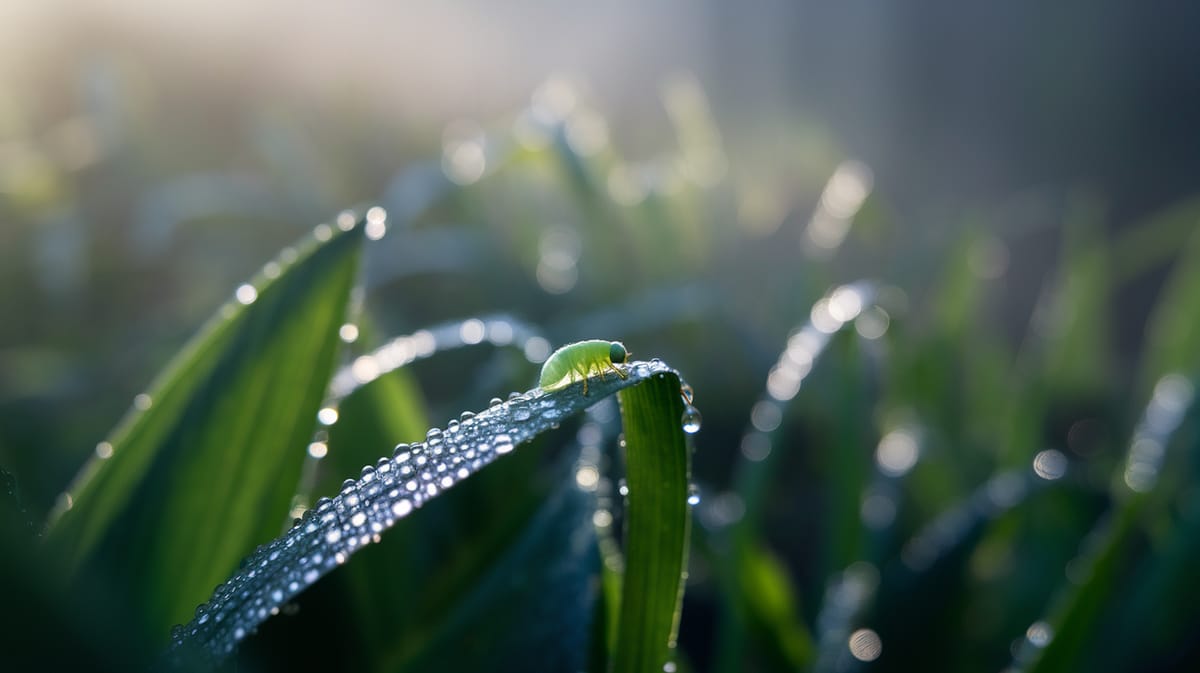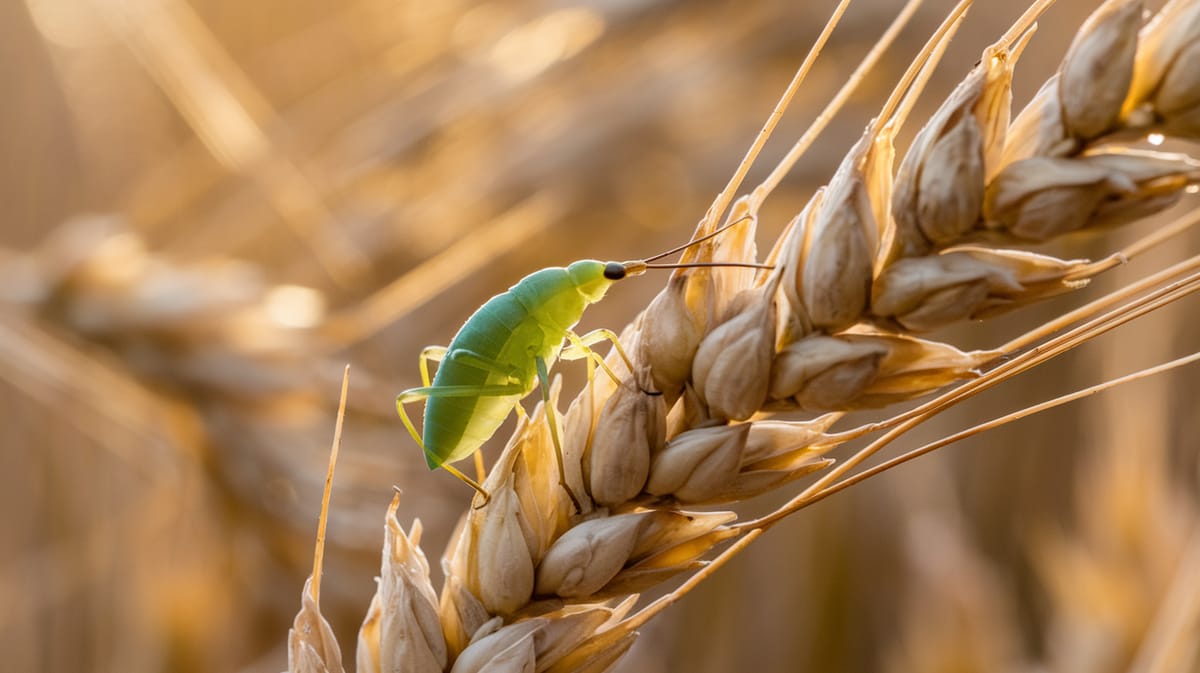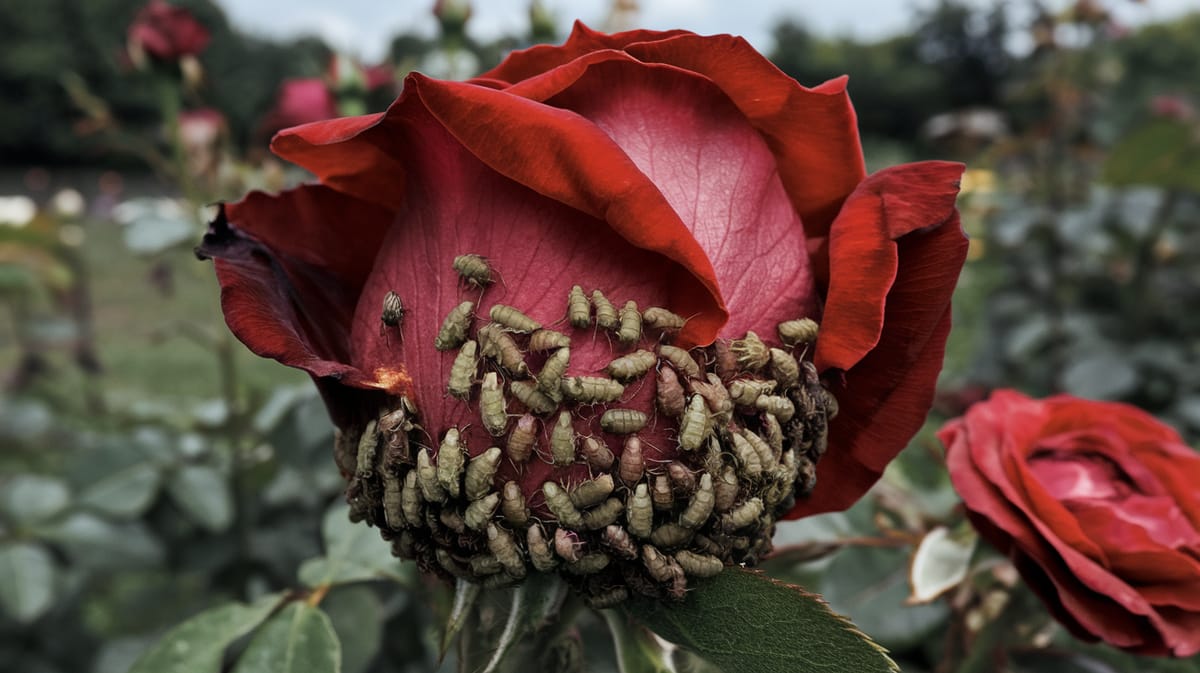Aphid
Tiny yet formidable, aphids are sap-sucking insects that can reproduce rapidly and influence plant health significantly. Their role as both pests and prey shapes ecosystems.

Key Insights at a Glance
Did You Know?
Taxonomy & Classification
Aphids, tiny sap-sucking insects, exhibit fascinating adaptations like rapid reproduction and mutualistic relationships with ants to thrive in various environments. Let's understand the evolutionary journey and classification of these remarkable herbivores.
Global Diversity
Aphids comprise over 4,000 species, distributed globally, reflecting a broad range of ecological niches and plant host preferences.
Evolutionary Origins
Originating in the Cretaceous period, aphids adapted through symbiotic relationships with plants and insects, aiding their survival across millennia.
Lifecycle and Growth
A remarkable journey of transformation from Egg to Adult.
Egg
Eggs are laid in clusters on host plants, entering a dormant state until favorable conditions return in spring.
Nymph
Nymphs hatch and resemble small adults, molting multiple times to grow rapidly and develop reproductive capabilities.
Adult
Adults are mostly wingless and reproduce asexually, multiplying quickly under ideal conditions to form large colonies.
Dietary Habits
A sap-feeding insect with specialized mouthparts, this creature thrives on plant juices and displays fascinating adaptations for feeding.
| DIET TYPE | DESCRIPTION |
|---|---|
| Primary Diet | Primarily feeds on the sap from a wide variety of plants, using its specialized stylets to pierce plant tissues. |
| Secondary Diet | Occasionally consumes honeydew excreted by other aphids, benefiting from the sugary, energy-rich solution. |
| Occasional | Rarely feeds on fungal spores or molds when plant sap is scarce, showing adaptability to resource availability. |

Behaviour and Adaptations
Discover the fascinating adaptations that allow aphids to thrive in diverse environments.
Rapid Reproduction
Aphids reproduce quickly, ensuring rapid population growth and survival.
Symbiotic Relationships
They engage in mutualism with ants, exchanging protection for honeydew.
Sap-Sucking Efficiency
Specialized mouthparts allow them to efficiently extract plant sap for nutrition.
Ecosystem Impact
Aphids play a crucial role in ecological sustainability through their interactions and contributions.
Nutrient Recycling
Aphids excrete honeydew, which enriches soil with nutrients for plants.
Food Source
Aphids serve as a primary food source for many predators.
Symbiotic Relationships
Aphids form mutualistic bonds with ants, aiding in nutrient distribution.
Conservation Challenges
Understanding and addressing the major threats to Aphid populations.
Chemical Exposure
Pesticides disrupt aphid life cycles and reduce their populations.
Habitat Loss
Agriculture and urbanization reduce aphid habitats and food sources.
Climate Change
Temperature shifts affect aphid reproduction and distribution.
Frequently Asked Questions
How long do Aphid live?
Aphids typically live for about 20 to 40 days, depending on environmental conditions and species. Their lifespan can extend if they reproduce asexually, producing several generations in a single season.
What do Aphid eat?
Aphids feed on plant sap, extracting nutrients from leaves, stems, and roots. They primarily target soft, new plant growth and can be found on a wide range of plants, including vegetables, fruits, and flowers.
Are Aphid poisonous?
Aphids are not poisonous to humans or pets. While they can damage plants by sucking sap and spreading plant diseases, they do not pose a direct toxic threat to people or animals.
Are Aphid endangered?
Aphids are not endangered. They are common pests found worldwide, thriving in various climates and environments. Due to their rapid reproduction and adaptability, they maintain stable populations across diverse habitats.
What do Aphid symbolize?
Aphids often symbolize persistence and adaptability due to their ability to reproduce quickly and thrive in various environments. In some contexts, they can also represent the negative aspects of consumption and pestilence, given their impact on crops.
Do Aphid bite?
Aphids do not bite humans or animals. They have specialized mouthparts designed for piercing plant tissues and sucking sap, but they are not equipped to bite or sting people or pets.
What color are Aphid?
Aphids can be green, yellow, brown, red, or black, depending on the species. Their color often serves as camouflage against predators and varies with their environment and life stage.
Does a Aphid have wings?
Some aphids develop wings, especially when populations become crowded or food is scarce. These winged individuals can migrate to new host plants, aiding in the spread of aphid populations.
What does a Aphid look like?
Aphids are small, soft-bodied insects, typically measuring 1 to 10 mm long. They have pear-shaped bodies, long antennae, and a pair of tube-like structures called cornicles on their abdomens. Their appearance can vary with color and presence of wings.
Is a Aphid an insect?
Yes, an aphid is an insect. It belongs to the order Hemiptera, which includes true bugs. Aphids are characterized by their small size, soft bodies, and specialized mouthparts for feeding on plant sap.
Related Insects
Discover insects with similar characteristics to Aphid - including shared habitats, diets, and taxonomic classifications
Share this profile
Help others discover Aphid
